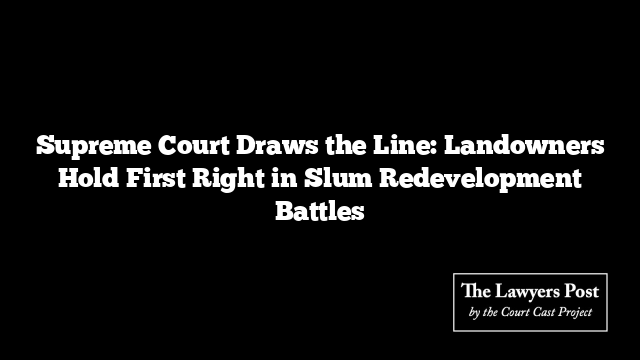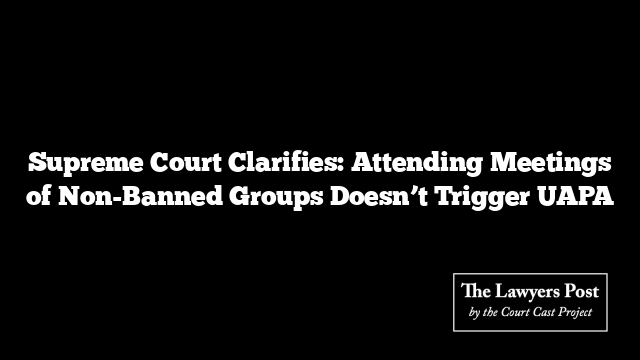In a crucial ruling on land acquisition for slum rehabilitation, the Supreme Court has made it clear—before the State or the Slum Rehabilitation Authority (SRA) steps in, the landowner gets the first shot at reviving the land.
The case revolved around a Kurla property long owned by Indian Cork Mills Private Limited, where slums mushroomed over decades. Residents eventually formed the Tarabai Nagar Housing Society and pressed the authorities to acquire the land for redevelopment. Acting on their request, the government moved to take over the plot.
But the apex court wasn’t impressed with how the process was handled. It held that under Chapter I-A of the Maharashtra Slum Areas (Improvement, Clearance and Redevelopment) Act, 1971, the landholder enjoys a preferential right to propose a rehabilitation scheme. That right cannot be brushed aside by the SRA or the State.
The judges stressed that the SRA must formally invite the landowner to submit a rehabilitation plan and then allow a “reasonable period” for it to be filed. Only if the owner fails to act within that window can the State proceed with acquisition under Section 14.
Interestingly, the bench didn’t mince words about the legislative drafting of the Slums Act itself, calling its rehabilitation framework “poorly structured” and confusing, though it refrained from delving deeper since the dispute predated the 2018 amendment.
The core issues before the Court were:
- Does a landowner have a preferential right to redevelop slum areas under the Act?
- Must the SRA issue a special notice to the owner before considering takeover?
- Is the State’s power to acquire land subordinate to this preferential right?
On all counts, the Court tilted towards the landholder. It ruled that when owners or occupants step forward with a plan, the SRA’s statutory claim to redevelopment is put on hold. However, the owner’s privilege isn’t unlimited—failure to act within a fair timeframe hands the reins back to the authorities.
In this case, since Indian Cork Mills had expressed intent to redevelop but was denied a fair chance to submit its scheme, the Court upheld the High Court’s earlier order setting aside the government’s acquisition.
The message from the top court is blunt: in Mumbai’s redevelopment maze, the first move belongs to the landowner.




